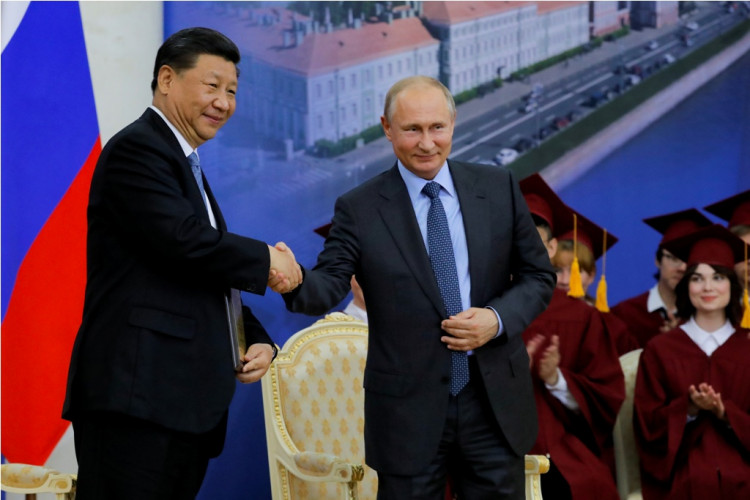Russian President Vladimir Putin will travel to China in late August or early September, the Kremlin confirmed Tuesday, continuing what officials described as a symbolic tradition of reciprocal visits tied to World War II commemorations. The trip will follow Chinese President Xi Jinping's participation in Moscow's May 9 Victory Day celebrations.
"This was the case 10 years ago, in 2015, and this will be the case this year," said Kremlin foreign policy aide Yuri Ushakov, referring to past patterns of mutual visits marking the end of World War II. Ushakov added that Putin would attend China's 80th anniversary events commemorating the Allied defeat of Japan, scheduled for September 3.
The Chinese Foreign Ministry previously announced plans for joint commemorations with Russia. In 2015, China held a military parade with over 12,000 troops and hundreds of aircraft and vehicles to mark the 70th anniversary of what it calls the "War of Resistance against Japanese Aggression."
Putin's upcoming visit will be his latest engagement in a series of high-profile meetings with Xi. The Russian president last traveled to China in October 2023 and before that in February 2022, weeks before Russia launched its full-scale invasion of Ukraine.
Xi's arrival in Moscow on Wednesday will mark his third visit to Russia since the war began. Ushakov told reporters the two leaders plan to discuss "the most sensitive" issues, including energy cooperation and the proposed Power of Siberia 2 gas pipeline.
Asked whether the Power of Siberia 2 pipeline project would be discussed, Ushakov responded affirmatively. The long-delayed 2,600-kilometer pipeline, which would pass through Mongolia, is intended to supply 50 billion cubic meters of Russian natural gas annually to China. That volume would nearly match the defunct Nord Stream 1 pipeline that once carried gas to Germany under the Baltic Sea.
Construction of the pipeline has been stalled amid unresolved pricing disputes. Although Moscow is eager to move forward as part of its pivot away from Europe, Chinese demand for additional natural gas is not expected to rise significantly until after 2030, according to energy analysts.
Russia's growing dependence on China has accelerated since the imposition of Western sanctions over the war in Ukraine. Beijing has emerged as a crucial partner, facilitating the import of high-tech components used in Russia's military industry and absorbing redirected energy exports.
Xi and Putin also met in Kazakhstan in July 2024 and during a BRICS summit in September 2024.






